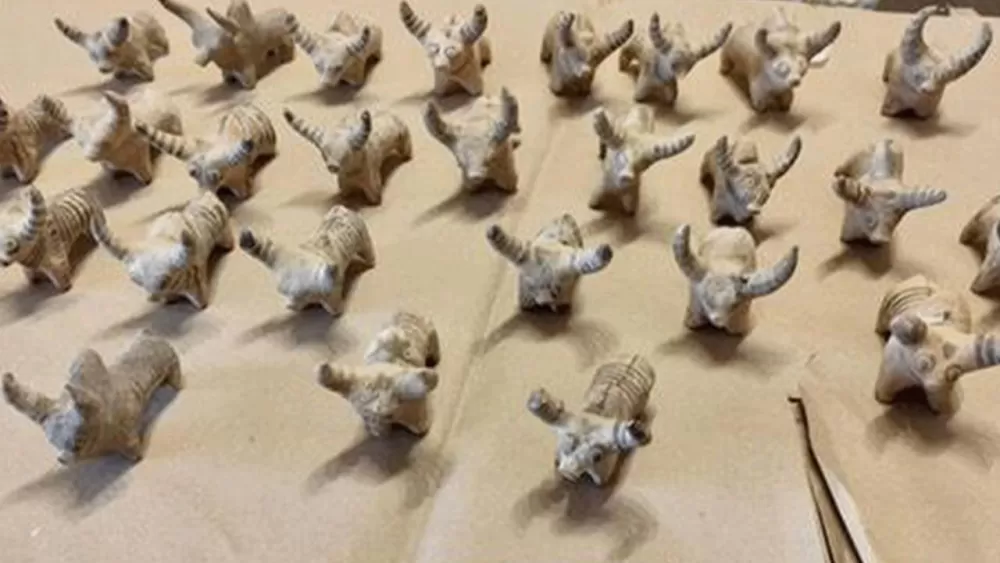A Timeless Homecoming: Pakistan's Ancient Treasures Reclaim Their Earth After Centuries Adrift
Share- Nishadil
- November 06, 2025
- 0 Comments
- 3 minutes read
- 40 Views

Ancient History Returns: Italy Repatriates Priceless Pakistani Artifacts
In a heartwarming display of international cooperation, Italy has returned a trove of 5,000-year-old stolen artifacts to Pakistan, marking a significant homecoming for pieces of the nation's rich cultural heritage. These ancient treasures, ranging from the Mehrgarh to Gandhara civilizations, will now find their rightful place in Pakistani museums.
Imagine, if you will, fragments of history—some as old as 5,000 years, born of civilizations that laid the very foundations of human ingenuity—lost, spirited away from their rightful home. For decades, perhaps even centuries, these precious relics of Pakistan's past have lingered in shadows, on illicit markets, far from the soil they were shaped from. But in a truly remarkable act of international goodwill, and honestly, a testament to unwavering dedication, these ancient treasures are finally, wonderfully, coming home. Italy, a nation itself steeped in boundless history, has repatriated a trove of these priceless artifacts, a gesture that feels more like a reunion than a simple handover.
The scene itself, one could say, was imbued with a quiet significance. Held at the Embassy of Pakistan in Rome, the ceremony wasn't just a bureaucratic exchange; it was a moment where the past, in a tangible sense, touched the present. Ambassador of Pakistan, Jauhar Saleem, stood alongside Major-General Roberto Riccardi, the Commander of Italy's Carabinieri for the Protection of Cultural Heritage. These are the unsung heroes, mind you, the ones who relentlessly chase down the threads of history, ensuring that what was stolen finds its way back. Their joint presence underscored a shared commitment—a bond, if you like—in safeguarding our collective human story.
And what treasures they are! We’re not talking about mere curiosities here; we're talking about echoes from the dawn of civilization. Among the returned items are pieces dating back an astonishing 5,000 years, remnants of the Mehrgarh civilization—a precursor, in truth, to the mighty Indus Valley Civilization. Think about that for a moment: 5,000 years! Other artifacts whisper tales from the Gandhara civilization, flourishing between the 2nd and 5th centuries AD, an era renowned for its distinctive Greco-Buddhist art. These aren’t just stones and clay; they are chapters, vivid and tactile, from Pakistan’s profound narrative, stretching back into antiquity.
For Ambassador Saleem, the gravity of the moment wasn't lost. He lauded Italy's exceptional cooperation, acknowledging the sheer scale of the challenge that the illicit trade of cultural property presents globally. It’s a shadowy world, full of greed and disregard for heritage. But actions like this—this dedicated pursuit and return—send a powerful message. It reminds us, doesn't it, that cultural heritage isn't just property; it's identity, memory, a shared inheritance that transcends borders. And it must be protected, fiercely so.
So, what awaits these ancient wanderers? They will soon embark on their final journey, not to a private collector's vault or a black-market den, but to Pakistan’s public museums. Here, finally, they will rest, proudly displayed for all to see, to study, to marvel at. They will educate, inspire, and, perhaps most importantly, narrate the rich, unbroken story of a nation. It’s a victory, then, not just for Pakistan, but for humanity’s shared past, proving that even after millennia, justice, in its own quiet way, can prevail.
Disclaimer: This article was generated in part using artificial intelligence and may contain errors or omissions. The content is provided for informational purposes only and does not constitute professional advice. We makes no representations or warranties regarding its accuracy, completeness, or reliability. Readers are advised to verify the information independently before relying on







